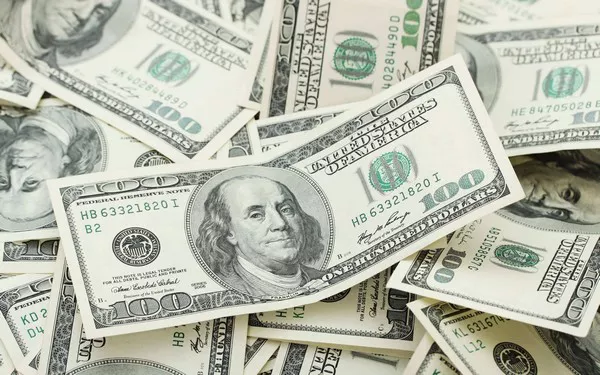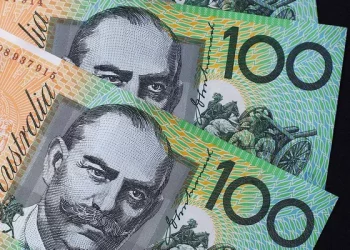Exchange rates play a crucial role in international finance, travel, trade, and investment. They determine the value of one currency in terms of another and fluctuate continuously based on global economic factors. For anyone planning to travel, invest, or conduct business internationally, understanding how exchange rates work is essential. When it comes to converting US dollars to Thai baht, staying updated with the current exchange rate ensures financial accuracy and smarter decisions.
The exchange rate between the US dollar (USD) and the Thai baht (THB) is particularly significant for tourists traveling to Thailand, expatriates sending money back home, and businesses that operate between the two countries. Knowing the value of $3,000 in Thai baht helps individuals manage their budgets effectively and allows businesses to forecast financial outcomes with more certainty.
Factors Influencing the USD to THB Exchange Rate
Several key factors influence the USD to THB exchange rate. These include economic indicators such as interest rates, inflation rates, trade balances, and geopolitical stability. Below are some of the most impactful variables:
- Interest Rates: When the US Federal Reserve increases interest rates, the USD typically strengthens, which may cause a rise in the value of USD against THB.
- Inflation Rates: Lower inflation in the US compared to Thailand can make the USD stronger, increasing its value in THB.
- Trade Balance: A positive trade balance in the US (exporting more than importing) may support a stronger USD.
- Political Stability: Countries with stable governments attract more foreign investment, strengthening their currencies. Political instability in either country can influence investor confidence and currency values.
Understanding these factors provides context for interpreting current and historical exchange rates between the two currencies.
Historical Trends in the USD to THB Rate
The USD to THB exchange rate has experienced various fluctuations over the years due to shifting economic and political landscapes. For example, during the Asian Financial Crisis in 1997, the Thai baht depreciated significantly. In recent years, the baht has shown resilience and occasional appreciation, reflecting Thailand’s relatively stable economy.
Here is a brief overview of historical exchange rate milestones:
- 1997: THB plunged from 25 to over 50 per USD due to the financial crisis.
- 2010-2015: THB stabilized and hovered between 30-33 per USD.
- 2020: Due to the COVID-19 pandemic, the baht weakened again, reaching nearly 33-34 per USD.
- 2023-2025: Exchange rates fluctuated between 34-36 THB per USD based on global economic recovery and interest rate changes.
These historical contexts can help predict future trends and provide insight into current conversion calculations.
Calculating 3000 USD in Thai Baht (THB)
To determine how much 3000 US dollars is in Thai baht, one must look at the current exchange rate. As of the latest data, the exchange rate stands at approximately 36 THB per 1 USD. This figure can vary slightly depending on the platform or financial institution used for conversion.
Calculation:
3000 USD x 36 THB/USD = 108,000 THB
Therefore, 3,000 US dollars is roughly equal to 108,000 Thai baht, based on a 36:1 exchange rate. However, the actual amount received can differ due to transaction fees, service charges, and varying rates offered by different currency exchange platforms.
Where to Convert USD to THB
When converting currency, the location and method of exchange can significantly impact the amount you receive. Below are common options for converting USD to THB:
1. Banks
- Offer secure and reliable exchange services.
- Often have less competitive rates and include service fees.
- Suitable for large transactions.
2. Currency Exchange Counters
- Found at airports, malls, and tourist areas.
- Convenient but may offer less favorable rates.
- Good for quick, small exchanges.
3. Online Money Transfer Services
- Platforms like Wise, Revolut, and Western Union offer competitive rates.
- Transparent fees and exchange rate calculators.
- Convenient for sending money abroad.
4. ATMs in Thailand
- Allow withdrawal in THB using a USD-based debit card.
- ATM fees and foreign transaction charges apply.
- Ensure card supports international withdrawals.
Choosing the right method depends on convenience, fees, and the exchange rate offered. Always compare options before proceeding.
Tips to Get the Best Exchange Rate
Maximizing the value of your money during a currency exchange involves careful planning. Here are some practical tips to ensure you get the best rate when converting USD to THB:
- Monitor Exchange Rate Trends: Use apps or websites to track real-time rates.
- Avoid Airport Kiosks: These typically offer lower rates and higher fees.
- Use Online Platforms: Services like Wise and Revolut often provide better rates.
- Exchange in Thailand: Rates in Thailand are often more favorable than those offered abroad.
- Check for Hidden Fees: Always account for service fees and commissions.
Taking these steps ensures you receive the maximum value when converting your dollars to baht.
Impact of Exchange Rates on Travelers and Expats
Exchange rates significantly influence the spending power of travelers and expatriates. For example, if the USD strengthens against the THB, American tourists get more baht for their dollars, increasing their purchasing power in Thailand. Conversely, a weaker dollar can make travel more expensive.
Expatriates living in Thailand and earning in USD benefit from favorable exchange rates, especially when transferring funds for living expenses. Budgeting becomes easier, and lifestyle choices can be broadened based on the amount of baht received.
Travelers are advised to calculate and budget in baht to manage costs effectively. Knowing how much 3000 USD translates to in local currency aids in planning accommodation, transportation, dining, and entertainment.
Economic Impact of USD to THB Exchange Fluctuations
Fluctuations in the USD to THB rate have broader economic implications beyond individual financial planning. Here’s how it impacts various sectors:
- Tourism Industry: A stronger dollar can attract more tourists from the US, boosting Thailand’s tourism revenue.
- Import/Export Businesses: US businesses importing Thai goods benefit from a stronger USD, while Thai exporters may struggle with reduced competitiveness.
- Foreign Investment: A stable and predictable exchange rate attracts foreign direct investment into Thailand.
Governments and financial institutions monitor these fluctuations to implement monetary policies that stabilize the currency and support economic growth.
Understanding Currency Risk and Hedging Options
Currency risk refers to potential losses due to changes in exchange rates. Businesses and investors dealing with USD and THB can use various hedging strategies to mitigate these risks:
- Forward Contracts: Lock in a rate for future transactions.
- Options Contracts: Provide the right, but not obligation, to exchange at a specific rate.
- Currency Swaps: Exchange principal and interest payments in different currencies.
These instruments help manage financial exposure and ensure profitability despite rate fluctuations.
How Exchange Rates Are Determined
Exchange rates are determined by a complex interplay of supply and demand in the foreign exchange market. Central banks, commercial banks, multinational corporations, hedge funds, and individual investors participate in this market, influencing rates through their buying and selling activities.
Factors such as GDP growth, political developments, interest rate differentials, and fiscal policies all contribute to determining the USD to THB rate. The floating exchange rate system allows market forces to set the value, although some central banks may intervene to stabilize or steer their currency.
Conclusion
Converting 3000 US dollars to Thai baht is more than a simple arithmetic exercise; it involves understanding the economic forces at play, choosing the right time and method for exchange, and being aware of fees and fluctuations. At an exchange rate of 36 THB per USD, 3000 dollars amounts to approximately 108,000 THB.
Whether you are a traveler, an expatriate, or a business owner, knowing how to optimize your exchange strategy can save money and enhance financial planning. Regularly monitoring exchange trends and leveraging online tools ensures you get the best value for your money in the ever-changing currency market.
Related Topics:

























